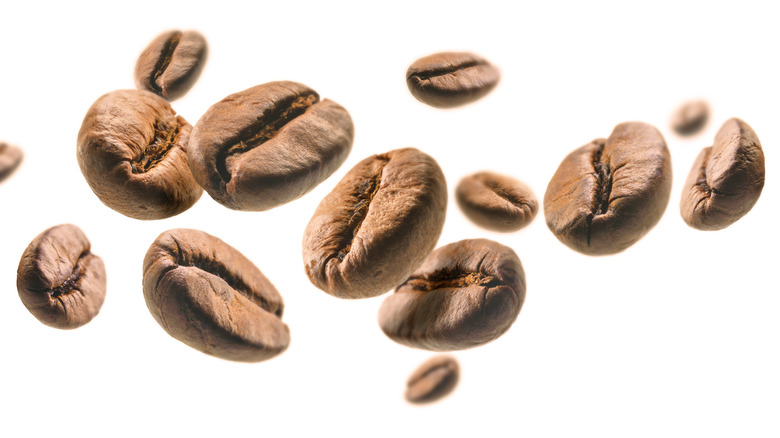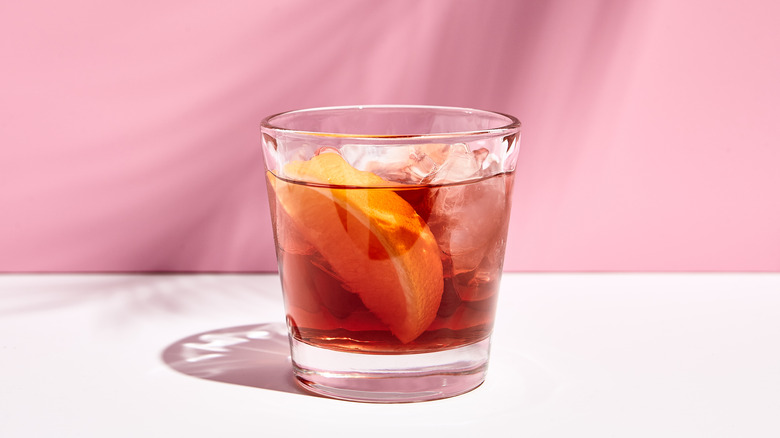The Unique Way Coffee Beans Can 'Season' Your Negroni
If you've ever had a cocktail garnished with coffee beans, chances are it was a Sambuca. This Italian anise-flavored liqueur has been given the coffee bean treatment for decades, if not centuries, with the number of beans — traditionally, it's three — attributed either to the Catholic trinity or to more generalized toasts to health, wealth, and happiness. But although Sambuca is the drink most commonly associated with coffee beans, it's not necessarily the one which benefits most from the flavoring provided by contact with the beans. The Negroni, another iconic Italian sipper, benefits much more in this respect.
For those who've forgotten (or never knew in the first place), the Negroni is made from equal parts Campari, sweet vermouth, and gin. The mixture is stirred and strained into an appropriate glass. Some garnish it with a twist of orange (or even blood orange), but as previously noted, coffee beans are even better. What is it particularly about this cocktail that responds to coffee beans? Well, that's the beauty of this alternative garnish. It actually improves the harmonious whole of all the ingredients.
How coffee beans are used in contemporary mixology
Coffee beans provide a delicate flavoring that can improve almost any drink, although it seems they're particularly well-suited to complementing the naturally occurring caramel and spice flavors found in sweet vermouth and whiskies. It should come as no surprise then that Nico de Soto, the Parisian mixologist who has popularized the technique, prefers using coffee beans to 'season' classic cocktails like the Negroni and the Manhattan, each of which includes one of these spirits.
Of course, the Negroni's receptiveness to coffee had already been established by one of its most recent variations: the coffee Negroni. This version of the iconic cocktail includes a shot of espresso along with the usual trio of ingredients. Although it has only become commonly served within the past decade or so, the addition of coffee has been hailed by bartenders. "The complex, bitter sweet ingredients are naturally pleasing for anyone obsessed with quality specialty coffee," notes mixologist Stephen Kurpinsky in Perfect Daily Grind.
De Soto's coffee bean seasoning offers a more subtle approach; so subtle that the flavor can be overpowered, which is why he doesn't recommend it with some liquors (especially those with higher proofs). It's also important to use the right kind of beans. Oily French roast beans are the best because, as de Soto explains to Punch, "More oil, more flavor." The oil from roasting is the key to creating the distinctive chocolate and caramel flavors which harmonize so well with the Negroni's other ingredients.

